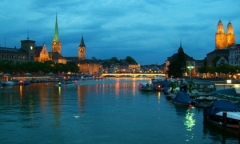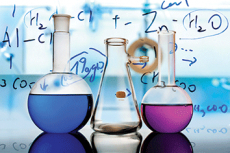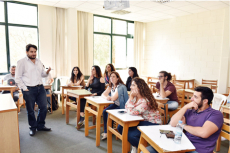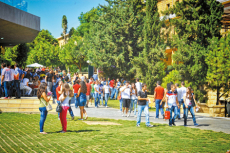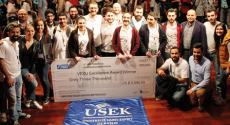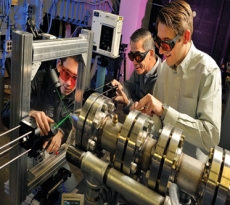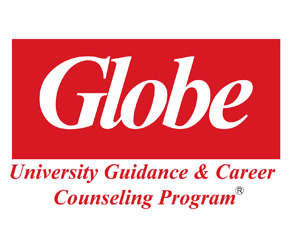Displaying items by tag: Swiss
Study In Switzerland
If you're looking to study abroad in a true higher education powerhouse, then you may well decide to study in Switzerland. Read our guide to find out everything you need to know about studying in this stunningly beautiful and impressively competitive European study destination…
Switzerland is home to one of Europe’s most prestigious higher education systems, including continental Europe’s two highest entries in the QS World University Rankings® 2015/16 – ETH Zurich (Swiss Federal Institute of Technology)andEcole Polytechnique Fédérale de Lausanne (EPFL)are both placed among the world’s top 15. Additional attractions to study in Switzerland come from the postcard-perfect beauty found throughout the nation, which is especially known for its magnificent Alpine mountains and dazzling lakes. With four official languages, it’s a true European melting pot, and consistently ranks among the world’s leaders on measures of quality of life.
List of Swiss Universities
École Polytechnique Fédérale de Lausanne
École Polytechnique Fédérale de Lausanne
World Rankings
- QS World University Ranking (2014–15) 17
- THE World University Ranking (2014–15) 34
Bachelor's degrees are offered in the following:
Architecture
Chemistry & Chemical Engineering
Civil Engineering
Communications systems
Computer Science
Electrical & Electronic Engineering
Environmental Sciences and Engineering
Financial engineering (master)
Life Sciences & Technology
Materials Science and Engineering
Mathematics
Mechanical Engineering
Microengineering
Physics
For further information
| Web | |
| Phone |
|
| Address |
|
World Rankings
- QS World University Ranking (2014–15) 12
- THE World University Ranking (2014–15) 13
Entry Standards
- The application deadline for the autumn term is 30 April, although late submissions (subject to an extra fee) may be accepted up until 31 July if supplied with evidence of extenuating circumstances.
- Application is made using online at http://www.rektorat.ethz.ch/students/admission/bachelor/foreign_qual/how_to_apply/index_EN.
- Application is open to everyone, however students may be asked to sit an entrance exam.
- Instruction at bachelor's level is in German and masters and doctoral programs are in English, however German is no longer a requirement of the Reduced Entrance Exam.
- No formal qualifications are required as long as students pass the admission test.
For further information
| Web | |
| Phone |
|
| Address |
|
World Rankings
- QS World University Ranking (2014–15) 116
- THE World University Ranking (2014–15) 75
History
- The University of Basel was founded in connection with the Council of Basel in 1460. Originally, it consisted of three principal faculties, Divinity, Law, and Medicine, as well as an Arts faculty designed to prepare students for courses in the other three faculties.
- In 1622 the University library was established, comprising the existing University collection and the stocks of secularized cloisters.
- In 1890 female students were first admitted to the university.
- In 1996 the University of Basel was granted autonomy from state administration.
- The University of Basel is now a modern and attractive center of teaching, learning and research, situated in the heart of a historic town.
Entry Standards
- Access to the bachelor programs requires a recognized secondary school leaving certificate or any other equivalent qualification recognized by the University of Basel.
- Please consult the admission policy of the University of Basel so that you know whether and under what conditions the educational qualifications you have are sufficient for application to a bachelor's degree program.
- The language of instruction at the university is mainly German. Students should already be at a level of at least C1 of the Common European Framework of Reference.
For further information
| Web | |
|
|
| Phone |
|
| Address |
|
World Rankings
- QS World University Ranking (2014–15) 145
- THE World University Ranking (2014–15) 132
History
- The University of Bern is located in the heart of the Swiss capital of Bern and was founded in 1834.
- The roots of the university go back to the 16th-century, when, as a consequence of the Reformation, a collegiate school was needed to train new pastors.
- The government of Bern transformed the existing theological college into an academy with four faculties in 1805, meaning it was also possible to study medicine and law.
Entry Standards
- A very good knowledge of German must be demonstrated for admission to a bachelor degree course.
- Applicants for a master degree course need not prove knowledge of German, although it is essential for all courses offered.
Course Flexibility
- The university's comprehensive offering includes 8 faculties, some 160 institutes, 43 Bachelor and 96 Master programs, PhD in all disciplines and more than 200 executive programs.
- Courses include theology, humanities, law, the economic and social sciences, medicine, veterinary medicine and sciences.
Teaching Standards
- The University of Bern enjoys special recognition in leading-edge disciplines, is reputed for the excellent quality of its teaching, and has a campus environment intimately linked to the social, economic and political life of the city.
Research Standards
- The University of Bern academic and research organization prides itself on its interdisciplinary work, exemplified by its strategic research centers (Fundamental Physics; Biomedical Engineering; Cognition, Learning and Memory; Development & Environment; Space and Habitability; Climate Change and World Trade).
- It also has four National Centers of Competence in Research: Climate, World Trade Regulation, and North-South sustainable development, and Trans Cure.
- The University is actively involved in a wide range of European and worldwide research projects, notably in the field of Space Research and Dental Medicine.
For further information
| Web | |
|
|
| Phone |
|
| Address |
|
World Rankings
- QS World University Ranking (2014–15) 85
- THE World University Ranking (2014–15) 107
Entry Standards
- All bachelor's degrees are taught in French, with an increasing number of master's level programs taught in English. A good standard of French is therefore necessary.
- Many foreign secondary level qualifications are recognized but, as in common with applications to all Swizz universities, in some cases students will be asked to sit additional tests.
- In all cases, students applying to undergraduate studies are expected to have covered six subjects at secondary level.
- All applications must be submitted through the university's website.
For further information
| Web | |
|
|
| Phone |
|
| Address |
|
World Rankings
- QS World University Ranking (2014–15) 105
- THE World University Ranking (2014–15) 136
Entry Standards
- International students must pass a French exam before admission to the University.
- The basic admission requirement is a secondary school-leaving certificate or its equivalent. Students not holding recognized certificates may be required to take a university entrance exam.
Course Flexibility
- Each main course is divided into two parts: the Bachelor, the first stage of the three years; and the Master, a second stage of 3 to 4 semesters giving the opportunity to specialize in a particular field of study or acquire interdisciplinary training.
- Academic year split into two semesters:
- Semester 1: September–December, followed by examinations in January.
- Semester 2: February–May, followed by examinations in June.
Teaching Standards
- Research institution composed of 7 faculties, focused mainly on Medicine, Life Sciences, Geosciences, Environment, Business, Humanities and Social Sciences.
- Renowned for innovative teaching and strong support offered to young researchers.
Research Standards
- 2,700 researchers, including 500 teachers, work within UNIL’s institutes, laboratories and libraries, consistently working on research projects of national or international significance.
Student Facilities
- State-of-the-art laboratories for researchers; spacious, well-equipped reading halls for teaching staff and students.
- Three unique faculties in Switzerland: Law and Criminal Justice, Biology and Medicine, and Geosciences and Environment.
- Close collaboration with the University Hospital of the Canton of Vaud.
- Lausanne Cantonal University Library with two million documents.
- A green and spacious lakeside setting, with excellent public transport links from the university campus to the capital of Vaud and its many cultural activities.
- Large catalogue of continuous and interdisciplinary training, and countless sports and cultural activities, ranging from language and IT courses; football, fitness of scuba diving at the Sports Centre; societies, film, theatre or exhibitions at the Barn Dorigny.
For further information
| Web | |
| Phone |
|
| Address |
|
Entry Standards
- Under Swiss law, foreign student enrollment is limited to a maximum of 25%. For this reason all students are compelled to sit either the HSG aptitude admission test or the GMAT, GRE or LSAT.
- A secondary-school leaving certificate will in most cases be sufficient to allow prospective students to sit the test, which is available in English or German.
- Proof of proficiency in German is a requirement for all courses except for the English-language master's programs.
- For autumn entry, a completed enrolment form must be submitted by 30 April.
For further information
| Web | |
|
|
| Phone |
|
| Address |
|
World Rankings
- QS World University Ranking (2014–15) 57
- THE World University Ranking (2014–15) 103
Entry Standards
- International applicants with non-Swiss qualifications must meet both general and national entrance requirements before applying. Depending on the student's foreign qualifications, applicants may be asked to take the additional Swiss Universities examination.
- Proof of German language proficiency is required for international students who wish to apply for bachelor or master’s programs or the teaching training program.
- Application periods for master and bachelor’s programs are 1 December to 30 April for the autumn semester and 1 May to 30 November for the spring semester.
For further information
| Web | |
|
|
| Phone |
|
| Address |
|






